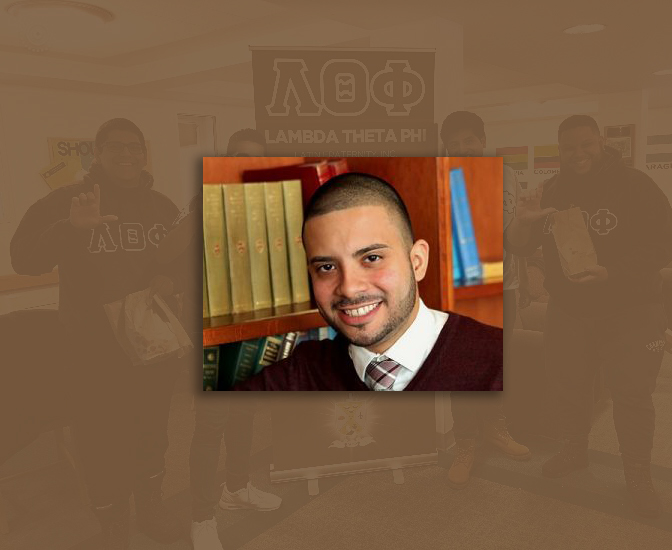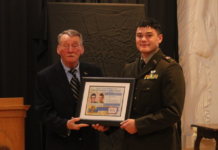As a Ph.D. candidate expecting to graduate this semester, I have found myself constantly reflecting on the impact joining Lambda Theta Phi Latin Fraternity, Inc. had on me. My entry point to higher education is tied to my experiences as an undergraduate student leader. My involvement on campus began after I joined my fraternity.
I had a tough adjustment to college. Struggling to keep up with the rigor, I had no intention of being involved in student organizations, however, I was drawn to the fraternity to be in community with students like me. As a participant of a summer bridge program at Cornell, I was mentored by a senior who was also from New York City. He was part of this fraternity and connected me with another brother who went to my high school. Through this network, I learned that I was not alone in my struggle in acclimating to Cornell and I decided to learn more about the fraternity since they had invested a lot of time in helping me adjust.
By joining the fraternity, I developed a sense of responsibility to be more involved on campus and join other organizations. As I developed my leadership skills and became engaged more on campus, I saw the role student leaders could have in creating positive change on campus. This would later inspire me to consider higher education as a career.
Multicultural fraternity and sorority members experiences at a PWI campus put me in community with students that were passionate in creating a better campus for students of color. What I thought I would learn in my sociology classes on inequality was actually taking place in our meetings responding to issues we faced as students of color on campus. My introductions to microaggressions, the imposter syndrome, and stereotype threat were not in the classroom, but during the programs that organizations held in the dormitories. This ignited my passion to learn more about these issues and I began to appreciate the value of life in college beyond the confines of the classroom.
I met men across all walks of life. I became friends with men I would have otherwise considered acquaintances or perhaps not even meet. Now, these men are my best friends and I am constantly thankful for the ways in which the brotherhood has helped me become the scholar that I am today.
Through the fraternity, I was able to connect with brothers in the field of higher education. As a graduate student in a doctoral program, I was intimidated to connect with faculty. However, that was not the case when I met fraternity brothers in academia. The connection we have as fraternity brothers voided the pressure I normally felt when I approach academics who do not know me.
The fraternity was a conduit to me believing in myself as a leader and as a scholar.
Graduate school can be isolating, but it’s nice to know that I am part of a network of brothers who are ready to support me when needed. Even today, as a Ph.D. candidate writing my dissertation and on the job market, I am constantly checked in on by fraternity brothers of my chapter. In the thick of writing and stressing, I find the spontaneous invitations to have dinner or to hang out as a reminder to take care of myself. They are there when I need to vent or freak out, and they tend to be the ones who encourage me to celebrate. I cherish the camaraderie I share with my brothers and I am thankful for the lifetime a brotherhood that the fraternity provides to me.
Andrew Martinez is a Ph.D. candidate at the University of Pennsylvania’s Graduate School of Education and research associate at the Rutgers Center for Minority Serving Institutions. You can follow him on Twitter @Drewtle




















